I think Woolf might been the first woman to get herself labelled feminist by writing explicitly about the connection between women’s lives and writing. And yet her feminism was a fight against this sort of labelling, this relegating of a human being to one specificity merely because as a woman she claimed the right to express that feminine trait of her being.
“anything written with conscious bias is doomed to death.(..)Some collaboration has to take place in the mind between the woman and the man before the art of creation can be accomplished.”
Does she really mean a sort of drawing-room gender bending? The fantastical biography Orlando bears out this ideal of living - aristocratically - beyond sexual difference with Orlando going from being a young man in Queen Elizabeth's court in love with a Muscovite princess; to life as Lady Orlando, encountering the eighteenth century writers Pope, Addison, and Swift and finally experiencing childbirth.
In a ‘A Room of One’s Own’ people always remember the sketch of ‘Shakespeare’s sister’ - the bard’s girl-twin whom Woolf imagines ended up buried at a London crossroads because there is no way that in sixteenth century England a middle-class woman of Shakespeare’s gifts would get an education, or escape early marriage to run away to London and make her way in the theatre as Shakespeare did, without being destroyed by sexual abuse. What is less well-known is this essay is also a discussion on what it is that makes the ‘creative mind’ ‘incandescent’ capable of 'bringing forth' as she says ‘without impediment.’ Looking out her window as she writes at the end of the essay, Woolf sees a man and woman walk down a street towards each other, get into a London taxi together and drive off. She reflects on the ‘happy ending’ effect of those physical opposites, male and female coming together, ‘one has a profound if irrational instinct in favour of the theory that the union of man and woman makes for the greatest satisfaction; the most complete happiness.’ This is interesting – maybe it’s what’s behind that gut reflex with which most women these days in groups in seminars or around dinner tables for instance, (with or without, the presence of men), refuse to identify themselves as feminists. Perhaps it’s merely an instinctive refusal of separatism within the sexes. Again maybe this reflex is connected to time and place. I remember in my first months in France one of my bosses in a language school where I once taught in Paris (English, gorgeous, bilingual and a quietly self-avowed feminist – well she did give up researching a phd on Simone de Beauvoir to earn her living and cast off man after man) - explaining to me that for French women ‘le regard masculin’ is extremely important. Sexual freedom in the public arena - compared for instance to what they call “le puritanisme anglo-saxon” goes with this pressure to be judged on sexual attractiveness, to constantly measure one’s value in aesthetic terms.
Compare this attitude to Iranian women who apply face make-up as we haven’t in this part of Europe since the early seventies - it’s a statement of course of the right to do what they feel like. They refer to themselves as feminists – at least the one I know best does, who happens to be my sister-in-law – without any defensiveness at all. With a big ironic grin which means you’d be naîve not to develop some feminist ruse to laugh off what a woman has to put up with every day under a regime where one woman is officially worth two men.
Tuesday, January 13
Subscribe to:
Post Comments (Atom)







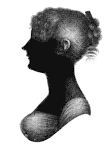


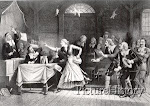
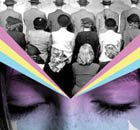
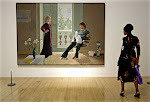


















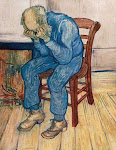



















No comments:
Post a Comment